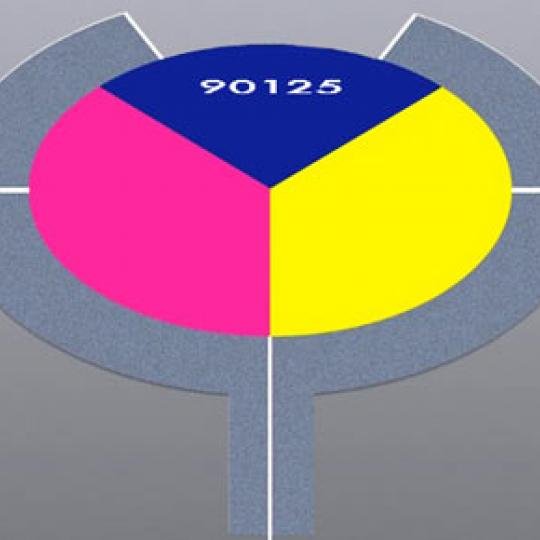
On Feb. 17, 1986, Talk Talk released their third album, an LP which found frontman Mark Hollis making a major move away from the pop-centric material of their first two LPs, taking several steps forward in their embrace of a more organic sound and a more improvisational manner of musicianship.
Produced by Tim Friese-Greene, The Colour of Spring wasn’t just a less overtly poppy album, it was an overt effort to get the hell away from that sort of thing. Actually, that’s not exactly true: it wasn’t that Hollis had a problem with pop, per se, but more than he was easily annoyed by the trappings of becoming a pop star.
Read More: February 1984: Talk Talk Release "It's My Life"
How ironic, then, that The Colour of Spring should’ve become the band’s most successful album in the U.K. up to that point, hitting the Top 10 of the country's albums chart and providing Talk Talk with a Top 20 single, too.
Stand up, please, “Life’s What You Make It”!
In discussing The Colour of Spring in the Sunday Times in January 1998, journalist Andrew Smith wrote:
The group had shrugged off the earlier perceptions of them, ditching synths, trading their catchy but clever four-minute pop songs for more expansive, intricate ones. The best-known tune from that period, "Life’s What You Make It," was predicated on a four-note piano bassline that stayed constant from start to finish, allowing Hollis’s voice and the other instruments to swirl around it - especially guest musician Steve Winwood’s swelling organ and the monumental guitar hook contributed by Pretenders guitarist Robbie McIntosh. Not only was this a rousing number, it was devilishly clever. Talk Talk were now big stars on both sides of the Atlantic.
In the wake of such acclaim, you’d naturally expect Talk Talk to try and maintain their momentum in order to build on that success. Instead, Hollis decided that they wouldn’t be touring behind the album. “People would just want to hear the songs as they are on the album, and for me that’s not satisfying enough," he said.
Hollis was also well past being over the whole music video thing, too, and had precisely zero intention of making any more, but that didn’t stick. More details to follow whenever we cover the anniversary of Spirit of Eden, which was released two years after The Colour of Spring and no doubt caused more than a few nervous breakdowns within the staff of the label.
In 2018, Stephen Wilson – late of Porcupine Tree, more recently of Blackfield – did an interview for Mojo’s Last Night An Album Saved My Life, and given our general topic of conversation, you will not be surprised to discover that the album he picked was The Colour of Spring.
"I think the first time I connected with The Colour of Spring was the video for 'Life's What You Make It' on a Saturday morning kids' show,” recalled Wilson. “I responded to the extraordinarily Gilmour-esque guitar line, which wasn't something you expected from a so-called synth pop group...I loved the music of the '80s but it did have a very processed, artificial quality. This was very natural sounding, almost something that could have been recorded in the late '60s, early '70s, with this musical palate I recognized, with Hammond organs, a very organic drums and bass production, acoustic guitars, very warm analogue spring reverbs. It was surprising but also exactly the kind of music I was looking for."
In 2021, it’s still the kind of music a lot of people are looking for. Whether it’s for the first time or the umpteenth time, why not give a spin?
- Log in to post comments



